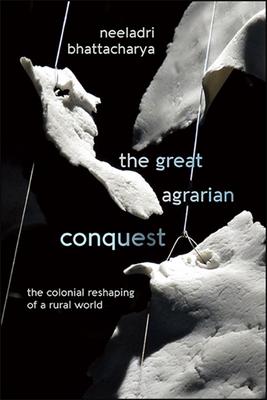
Book
The Great Agrarian Conquest: The Colonial Reshaping of a Rural World
(Write a Review)
Paperback
$42.17
Such radical change, Neeladri Bhattacharya shows, is as much conceptual as material. Agrarian colonization was a process of creating spaces that conformed to the demands of colonial rule. It entailed establishing a regime of categories--tenancies, tenures, properties, habitations--and a framework of laws that made the change possible. Agrarian colonization was in this sense a deep conquest.
Colonialism, the book suggests, has the power to revisualize and reorder social relations and bonds of community. It alters the world radically, even when it seeks to preserve elements of the old. The changes it brings about are simultaneously cultural, discursive, legal, linguistic, spatial, social, and economic. Moving from intent to action, concepts to practices, legal enactments to court battles, official discourses to folklore, this book explores the conflicted and dialogic nature of a transformative process.
By analyzing this great conquest, and the often silent ways in which it unfolds, the book asks every historian to rethink the practice of writing agrarian history and reflect on the larger issues of doing history.
Such radical change, Neeladri Bhattacharya shows, is as much conceptual as material. Agrarian colonization was a process of creating spaces that conformed to the demands of colonial rule. It entailed establishing a regime of categories--tenancies, tenures, properties, habitations--and a framework of laws that made the change possible. Agrarian colonization was in this sense a deep conquest.
Colonialism, the book suggests, has the power to revisualize and reorder social relations and bonds of community. It alters the world radically, even when it seeks to preserve elements of the old. The changes it brings about are simultaneously cultural, discursive, legal, linguistic, spatial, social, and economic. Moving from intent to action, concepts to practices, legal enactments to court battles, official discourses to folklore, this book explores the conflicted and dialogic nature of a transformative process.
By analyzing this great conquest, and the often silent ways in which it unfolds, the book asks every historian to rethink the practice of writing agrarian history and reflect on the larger issues of doing history.
Paperback
$42.17